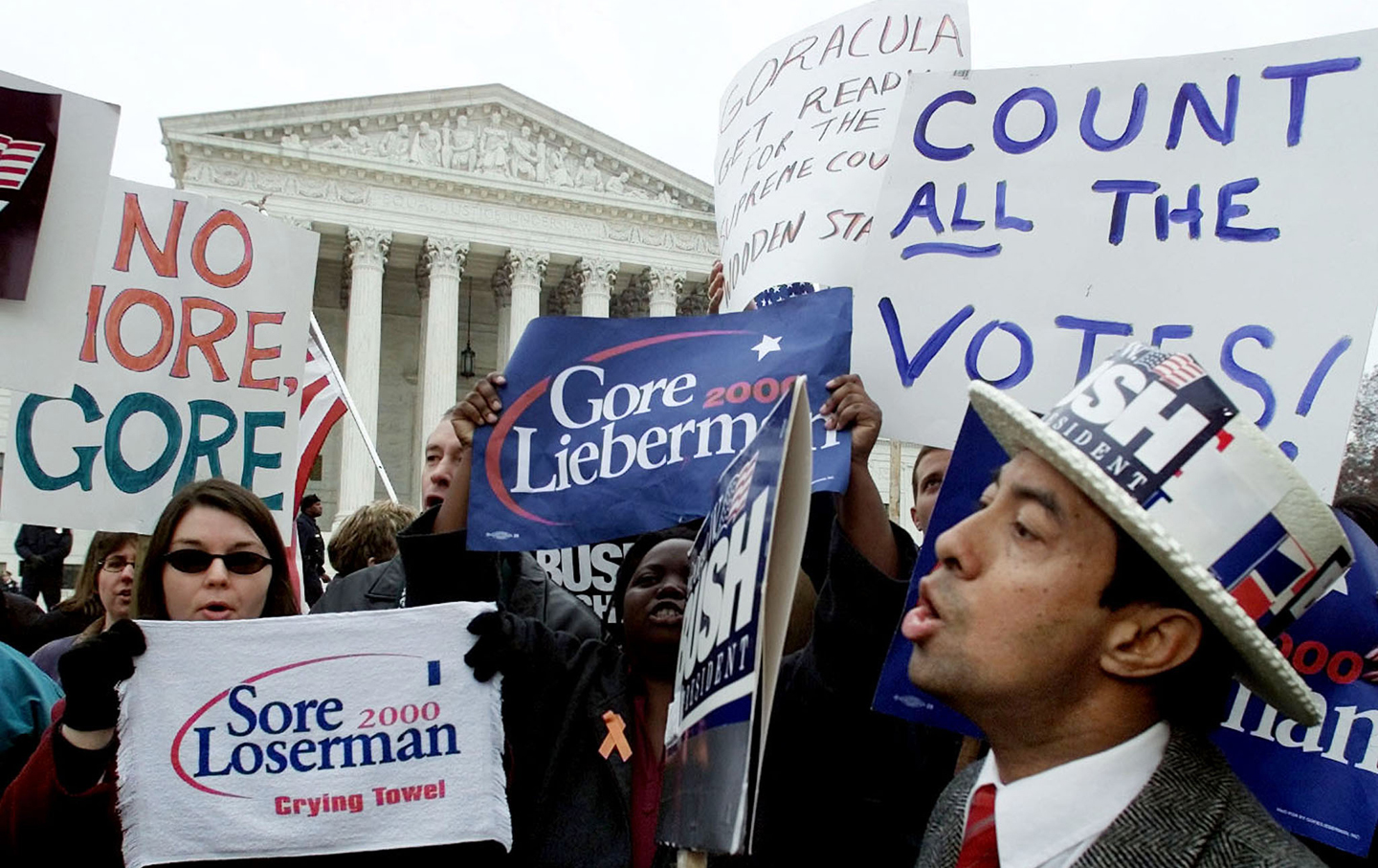
On November 7, 2000, Willie Steen, a Navy vet who had served in the Persian Gulf during Desert Storm, went to cast his ballot for president at the St. Francis Episcopal Church in Tampa, Florida.
He brought his 10-year-old son, Willie Jr., to the polls for the first time. They waited a half hour to reach a poll worker. When Steen gave the poll worker his name, she searched a list of registered voters in the precinct and told him, “You can’t vote. You’re a convicted felon.”
“You must be mistaken,” a shocked Steen replied. “I’ve never been arrested in my life.” He worked at a hospital, a Tampa orthopedics center, that wouldn’t employ anyone with a felony conviction.
He left in embarrassment, struggling to explain to his son what had just happened. After fighting for his country abroad, he wasn’t able to exercise his most fundamental right at home. “I felt I was shafted,” Steen said. “I think there were a lot of things that weren’t done properly. My name was dragged through the mud.”
He later found out from journalist Greg Palast that he’d been confused with a convict named Willie O’Steen, who had committed a felony between 1991 and 1993, when Steen was in the Persian Gulf. Little did Steen know that the same thing was happening to voters across the state of Florida—and disproportionately to voters like him, who were African-American.
Before the election, Florida sent its county election supervisors a list of 58,000 alleged felons to purge from the voting rolls. Florida was one of eight states that prevented ex-felons from voting. The felon-disenfranchisement law dated back to 1868, when the state banned anyone with a felony conviction from voting unless the governor issued a pardon.
The law targeted newly emancipated African-Americans, who during slavery were far more likely to be arrested than whites, including for such offenses as looking at a white woman. This racially discriminatory policy was still on the books in 2000. Blacks made up only 11 percent of registered voters in the state, but 44 percent of those on the purge list, which turned out to be littered with errors.
Hanging chads, butterfly ballots, the antics of Florida Secretary of State Katherine Harris, and thousands of Jews accidentally voting for Pat Buchanan in Palm Beach were among the stories that captured the headlines during the chaotic 36-day Florida recount between Al Gore and George W. Bush. The widespread and wrongful purging of registered voters was the most consequential—and least discussed—aspect of the Florida election.
“The parties and the candidates did not want to focus on the racial impact of decisions that were made in Florida,” said civil-rights lawyer Judith Browne Dianis. “It was one of those moments when race was being swept under the rug.”
The NAACP sued Florida after the election for violating the Voting Rights Act (VRA). As a result of the settlement, the company that the Florida legislature entrusted with the purge—the Boca Raton–based Database Technologies (DBT)—ran the names on its 2000 purge list using stricter criteria. The exercise turned up 12,000 voters who shouldn’t have been labeled felons. That was 22 times Bush’s 537-vote margin of victory.
No one could ever determine precisely how many voters who were incorrectly labeled felons were turned away from the polls. But the US Civil Rights Commission launched a major investigation into the 2000 election fiasco, and its acting general counsel, Edward Hailes, did the math the best that he could. If 12,000 voters were wrongly purged from the rolls, and 44 percent of them were African-American, and 90 percent of African-Americans voted for Gore, that meant 4,752 black Gore voters—almost nine times Bush’s margin of victory—could have been prevented from voting. It’s not a stretch to conclude that the purge cost Gore the election. “We did think it was outcome-determinative,” Hailes said.
The 2000 election in Florida forever changed American politics and kicked off a new wave of GOP-led voter disenfranchisement efforts. “Other people began to see that in very competitive elections, you could make a difference by keeping certain voters from participating,” Hailes said. Bush’s election empowered a new generation of voting-rights critics, who hyped the threat of voter fraud in order to restrict access to the ballot, and remade a Supreme Court that would eventually gut the centerpiece of the VRA.this is called cheating and violating others right to vote, this was Jeb handing the presidency to his brother and the right wing leaning side of the scotus confirmed the act of silencing voices by voter purging. and in 2012 scotus once again assisted the republicans by striking down sect. 4 of the voter rights act and have not admitted it was wrong or tried to repeal it.
republicans in office today brag about how the people elected and re-elected them and their agendas but gerrymandering and voter suppression was what did it and the scotus well there was talk of them looking into it but not before 2016 elections. hard to get democracy when so many blocks of the building are eroded.
equally as egregious are those who are republican voters see nothing wrong with cheating other Americans just get control if it had been the opposite would they still be as complacent???????? now those same people they elected are trying to take their healthcare, food stamps and medicaid and wages and right to bargain in the workplace. arrogance has the ability to harm stupid arrogance hurts literally.